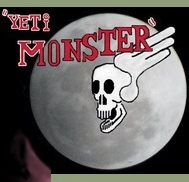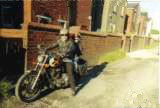|
HEALTH AND SAFETY Whilst actual laws regarding health and safety in the shed are few and far between, this is no reason not to operate in a safe manner. C.O.S.H.H. (control of substances hazardous to health) Keep all chemicals in their original container if possible, otherwise correctly label the containers they are in. Segregate all chemicals (oils, solvents, paints and fuels etc.) into one area, preferably a cupboard that can be locked. Read any data that is printed on, or supplied with chemicals as this will provide emergency information as well as directions for safe use and correct disposal. Waste disposal. Just because you are not running a business, it doesn’t mean you are not legally responsible for the waste generated in your shed. Don’t fly tip, ever. If you have trouble with local domestic waste sites, as is increasingly the case, then take out small amounts of trash to the council owned litter bins in town and use them. Old batteries have to go to recycling stations, as do scrap metals etc. Safe Working Practice. When working alone, it is easy to fall into bad habits. Operating machinery without wearing PPE (personal protective equipment) might seem ok, but it isn’t. Eye protection, Whenever you are working, eye protection is essential. A pair of safety specs doesn’t cost much, you might look silly, but think back to the last time you got something in your eye! If you only ever prevent a repeat of that, then it was worth it, and the worst case scenario, you can avoid permanent blindness, by taking this simple step. If using any grinding equipment, use approved goggles, again these don’t cost much, and will save your eyes some day. If welding, use the correct shaded eye protection, and ensure that anyone assisting you is using them as well. Ear protection. You may use ear plugs whilst riding, many riders do. If you are grinding or using a hammer drill, wear your earplugs, the sound levels might not be on an industrial scale, but they can be loud, also they help keep crap out of your ears. Respiratory Protection. When grinding, polishing and spray painting, wear at least a minimal dust mask, though it is certainly worth investing in decent protection, if you plan any major re-spray work. Foot protection. Always wear steel toed shoes or boots whilst working in or around the shed. Rigger style "slip on" boots are idea if, like me, you seem to be always popping out to the shed, or nipping in the house for something, saves trailing grease and shit all over that polished parquet flooring and those lovely beige carpets that your misses insisted were a good idea. Clothing. Wear a good set of coveralls, or dedicated “shed” clothing, and remove when returning to the house, to avoid bringing “shedness” into the house. Skin Protection. Exposure to chemicals can lead to some very nasty skin conditions and burns. These can happen instantaneously, as well as over a prolonged period. So it is important to wear a barrier against contamination, a physical barrier, such as impervious gloves when using solvents and degreasing agents, latex “examination” gloves for general work, or a Chemical barrier cream. It is recommended that a barrier cream is used in conjunction with a physical barrier method. Third party protection. You are responsible for anyone who enters the shed under you supervision. Therefore you must insist that they behave in a respectable and responsible manner, that they only touch things with your permission. And don’t tolerate any dickin' about. Local neighbours may also be affected by your shedology, by fumes, loud noise and bright lighting. You may be held responsible for your actions, as neighbours tend to be very dimwitted, or just plain ignorant of shedology. Operating machinery When using rotating machinery, ensure long hair, loose clothing and straps are kept clear, Always remove chuck keys, sweep down drill presses and lathes. Keep safety guards in place. HEALTH AND SAFETY |

 SHEDOLOGY: GRASS ROOTS ENGINEERING.
SHEDOLOGY: GRASS ROOTS ENGINEERING.